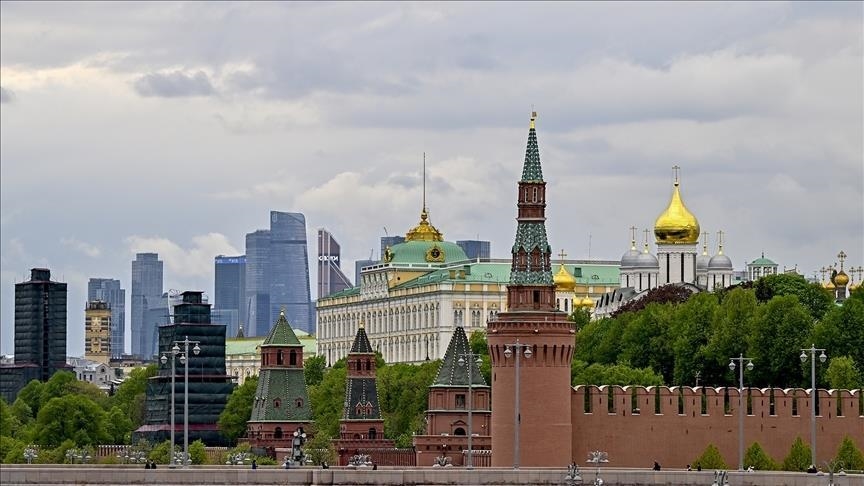Turkey seen landing ‘softly’ in 2005
The year 2005 is expected to prove to be a period of moderate economic growth in Turkey after 2004’s robust performance, thereby allowing national income to rise and disinflation to continue simultaneously.
Analysts often refer to a period of moderate growth following a stint of rapid economic expansion as a "soft landing." The term suggests a growth rate high enough to avoid recession but slow enough to avoid high inflation and high interest rates that generally follow. Although the term soft landing itself is commonplace, its actual occurrence in reality, especially in Turkey, has been less than common. Turkey rarely avoids a sharp recession after a period of strong growth over the past decades. To refresh the readers’ memory of recent history, the 6.4 percent earthquake-inflicted contraction in 1999 was followed by a 6.1 percent growth in 2000. This wave was followed by a dramatic 9.4 percent contraction in 2001, followed by a 7.8 percent growth in 2002. Steady growth has not been Turkey’s story.
The last few years have proved different, however. The Turkish economy has posted positive growth rates for three consecutive years, thanks mainly to an International Monetary Fund (IMF)-backed program aimed at securing macroeconomic stability through structural reform and price stabilization. The program has been slated to continue for a few more years, in line with an accord between the IMF and the government.
A revised government projection sees gross national product (GNP) growth picking up to a phenomenal 10 percent in 2004, compared to 5.9 percent in 2003. Growth has been largely driven by gross fixed capital formation and private final consumption spending over the first three quarters of last year, according to latest data available. From the output perspective, industry and trade account for the figures, to a great extent.
The first half of last year witnessed a full realization of pent-up demand after the 2001 economic crisis. "Pent-up demand, together with the very low base, has contributed to a record growth rate in the first half of 2004, with the domestic demand expanding by around 13 percent on the year," brokerage Finansinvest economist Volkan Kurt wrote in a recent report. Kurt noted that an approximate 19 percent price cut in consumer durables had also kicked off a sales boom in that sector. The analyst went to suggest that coupled with the expansion of consumer loans and the increased availability of financing in the private sector, appreciation of the lira gave a further boost to economic activity.
The economy, however, cooled down rapidly in the third quarter of the year and it is estimated that an even more rapid cooling in the last quarter of 2004 may contribute to the failure of the final government projection. Turkey posted GNP growth rates of 12.4 percent, 14.4 percent and 4.7 percent respectively in the first three quarters of 2004.
"Industrial output, trade and capacity utilization figures all point to a visible slowdown in economic activity in the last three to four months," brokerage HSBC Yatirim economist Ahmet Akarli told the TDN.
"It’s clear that full-year GNP growth is likely to remain well below the revised official estimate of 10 percent, probably even below 8 percent," Kurt said in his report.
The cooling is expected to drag on well into 2005 also because of the strong base period effect. Some even began to question the attainability of the official GNP growth target of 5 percent for the year. A recent tax hike on passenger cars threatens automotive sales. A tax hike on consumer durables remains a possibility, which, if happens, would rein in the ongoing boom in that sector.
Akarli said a moderation in consumer and investor behavior was due for the period ahead. "Turkey is shifting to a more sustainable economic growth pattern," he suggested.
On the other hand, appreciation of the local currency is foreseen to continue throughout the year, suggesting that domestic demand will persist as a driver of economic activity, instead of exports.
A favorable political climate at home and abroad contributes to the positive market sentiment regarding this year’s outlook. "Continued stability in the domestic political area, as well as the twin anchors of the European Union and the IMF should make up for part of the impact of the relative weakness in demand," investment bank JP Morgan economist Yarkin Cebeci told the TDN. The expected kick-off of EU membership negotiations steadily nourished investor interest in Turkey’s equity markets last year and is also likely to accelerate direct investment flows into the country in 2005. In a recent report, the Institute of International Finance estimated direct investment in Turkey would reach $3.8 billion this year partly due to big-ticket privatizations including Tüpras and Türk Telekom.
Looking at individual sectors, the Turkish textile industry may receive a relatively hard blow due to the elimination of textile quotas around the globe, but the construction and tourism sectors will likely gain momentum. "Being export-oriented sectors, consumer electronics and automotives should also get along fine," Cebeci said.
Nevertheless, the economist noted that economic growth may fall marginally short of the government’s 5 percent target and come in around 4.7 percent.
This benign macroeconomic outlook may still be undermined by certain adverse external developments such as an unexpected rapid slowdown in the U.S. economy, or aggressive policy decisions by the Federal Reserve, which could steer capital flows away from emerging markets. HSBC’s Akarli suggested that current forecasts were based mostly on the assumption that the United States will continue to be able to sustain its twin deficits, i.e., deficits of the budget and trade.
"It’s believed that the Fed will opt for a subtle approach and gradually raise interest rates towards the 3.5-4 percent range over the next sixth months and will then reduce them again," Akarli said.
Analysts are largely ruling out a catastrophic global scenario and crediting a global soft landing this year. But even in the case of major exogenous shocks, Turkey, they say, is much better equipped than it was before.
"The structural reforms were critical. Prudent fiscal policies, independence of the central bank and an improved regulatory environment in the banking sector helped ensure confidence and reduce the vulnerability of the economy to external shocks," Akarli said.



